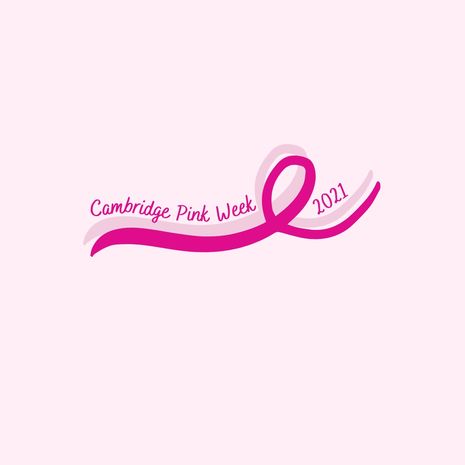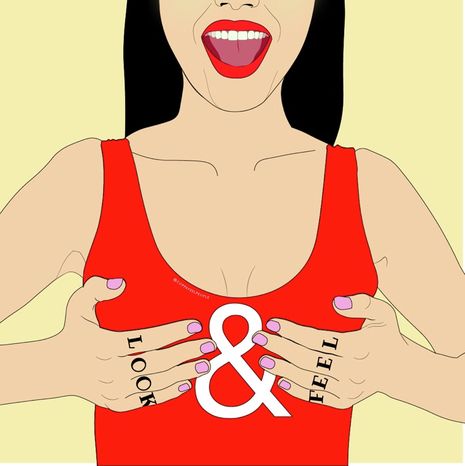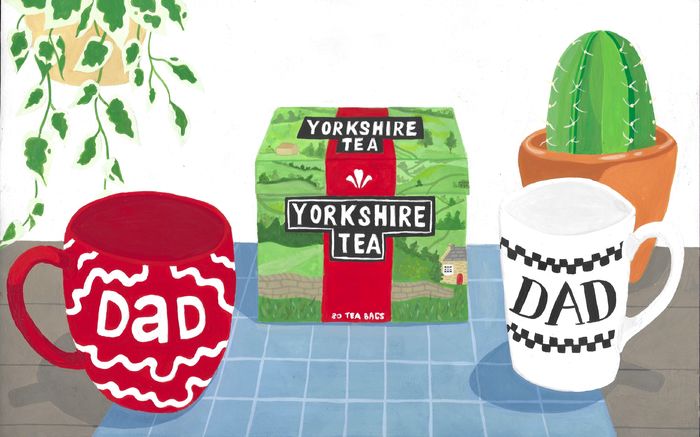Breasts – a surgeon’s ‘what to do’ guide
As part of Varsity‘s series of articles marking Cambridge Pink week, Consultant Oncoplastic Breast Surgeon Miss Amy Burger talks us through checking your breasts

So, breasts – we all have them, yes, even you boys! Here in the breast clinic in Kings Lynn we have some of the busiest clinics in the hospital, and see over 3000 new patients every year, on top of a similar number of follow up patients. Fortunately, the majority of patients referred to us are the worried well, and we treat in the region of 300 new cancer patients each year.
Cancer is what everyone worries about when thinking about symptoms they may have in their breasts, when in fact, normal and benign changes are far more common. So I’d like to take this opportunity to reassure you about the very low risk of cancer, and give a little information so that you all feel confident with what is normal for you.
“Breast pain is the most common symptom we see in the breast clinic, and the least worrying. Pain alone, without anything different to feel, can be regarded as normal.”
Breast examination – use this as a time to know what is normal for you, rather than anxiously trying to find ‘something’. Everyone’s breasts are different (take that from someone who has examined a few!), and you may even find differences between your two! Some breasts are very soft and a change such a lump would be quite obvious; others are dense and lumpy all the time – and that’s fine, you need to get familiar with those ‘normal’ lumps and bumps. I’d recommend examining just once a month, after your period when things are the most settled. This can be in the shower or bath, or lying on the bed. Pop your arm up behind your head and gently use the flat of your fingers in a circular pattern around the breast and then gently in the armpit feeling up towards your collarbone. It should only take a minute or so to check each side. You may feel little smooth lumpy bits that feel a bit like lentils – this is what normal glandular breast tissue feels like. Many people, especially if you’re slim, can feel normal lymph glands in your armpit – these feel a bit like a baked bean – firmer than the fatty tissue, but smooth.

If you feel anything that feels ‘different’ from normal breast tissue, I’d simply make a note of this and re-examine in 4 weeks time. If it’s settled – no worries, if you can still feel it, it’s worth seeing your GP for most likely reassurance.
Breast cancer is very rare in women of student age, it’s really important to emphasise that. However, if cancer does appear, it is almost invariably a hard painless lump that feels definitely different from normal breast tissue. The lump may be in the breast tissue or present as an enlarging harder lymph node in the armpit.
Breast pain! This is SOOOO common! It’s the most common symptom we see in the breast clinic, and the least worrying. Pain alone, without anything different to feel, can be regarded as normal. Very occasionally we do pick up cancer in a woman presenting with pain, but this is usually picked up incidentally, and is unrelated to the pain. Even more rarely, we find a very advanced breast cancer which has progressed so much that it causes pain – this is VERY uncommon!
Men! Yes you have breasts too! All men have a tiny amount of breast tissue just behind the nipple – this can grow for many reasons, and when it does it is generally a little tender. Growth of this normal breast tissue is called gynaecomastia. It can appear with no particular cause, or due to medications, excess weight, alcohol excess, cannabis use, anabolic steroid use, consumption of whey protein or a high protein diet that may contain excess oestrogen (the female hormone). As with female breast pain, the tenderness isn’t a worrying feature, in fact it’s rather reassuring. If you’ve noticed this symptom, see if any of the causes above apply and can be reduced. It’s an annoying issue, but is often resolved by itself and we wouldn’t recommend specific treatment, surgery etc.
Male breast cancer is very, very rare in men under 50, and tends to present as a stony hard, painless lump under the nipple that may cause distortion of the appearance of the nipple.
In conclusion, I’d advise you to get to know your breasts through monthly examination, but treat this more as becoming familiar with your breasts, rather than anxiously hunting for something. If you are worried, your GP and breast specialists in the hospital are here to help.
Miss Amy Burger
Consultant Oncoplastic Breast Surgeon
The West Norfolk Breast Unit, Queen Elizabeth Hospital NHS Foundation Trust. King’s Lynn, Norfolk
If you would like to support Cambridge Pink Week 2021, attend our events or access our educational resources, follow the links to our JustGiving page, website and Facebook page below:
https://www.justgiving.com/crowdfunding/cambridge-pink-week
https://www.cambridgepinkweek.com
https://www.facebook.com/CambridgePinkWeek
 News / Cambridge academics stand out in King’s 2026 Honours List2 January 2026
News / Cambridge academics stand out in King’s 2026 Honours List2 January 2026 Interviews / You don’t need to peak at Cambridge, says Robin Harding31 December 2025
Interviews / You don’t need to peak at Cambridge, says Robin Harding31 December 2025 Comment / What happened to men at Cambridge?31 December 2025
Comment / What happened to men at Cambridge?31 December 2025 News / Varsity’s biggest stories of 202531 December 2025
News / Varsity’s biggest stories of 202531 December 2025 Features / “It’s a momentary expression of rage”: reforming democracy from Cambridge4 January 2026
Features / “It’s a momentary expression of rage”: reforming democracy from Cambridge4 January 2026










